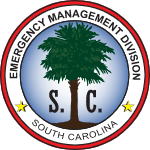Crisis Support
What We Do In a Crisis
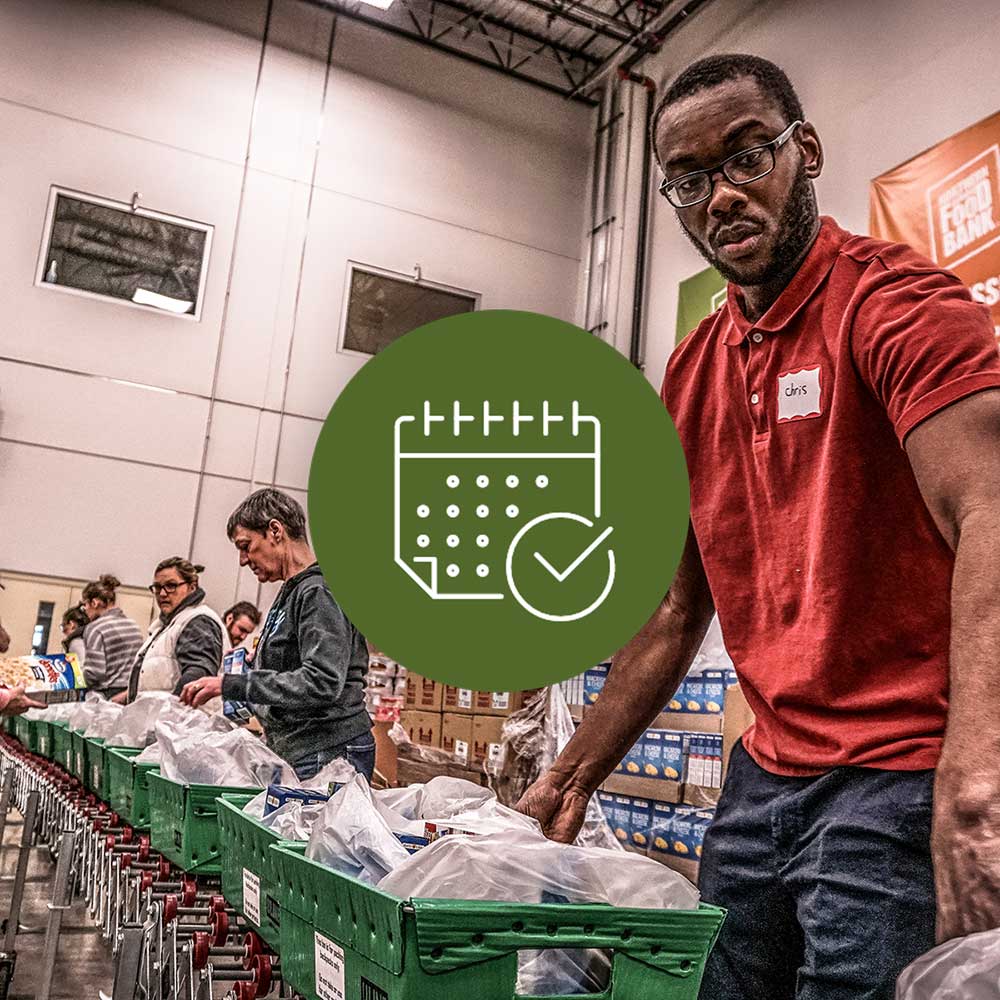
Coordination + Logistics
When a disaster hits North or South Carolina, typically the state will activate its Emergency Management Division and our team physically goes on-site to assist with the coordination and logistics of donated products, services, and funds. We work with organizations like Baptists on Mission, the Red Cross, and the Salvation Army to coordinate volunteers and relief efforts.
Advocate + Promote
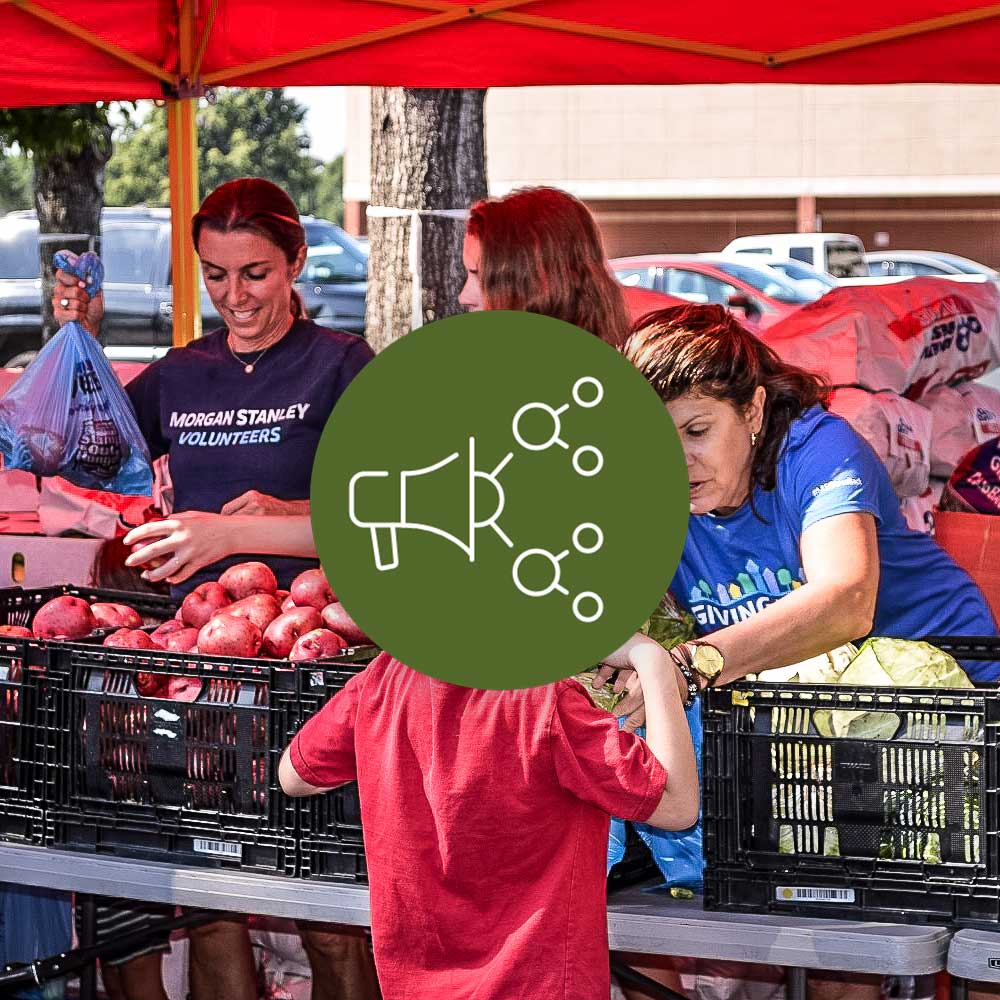

Advocate + Promote
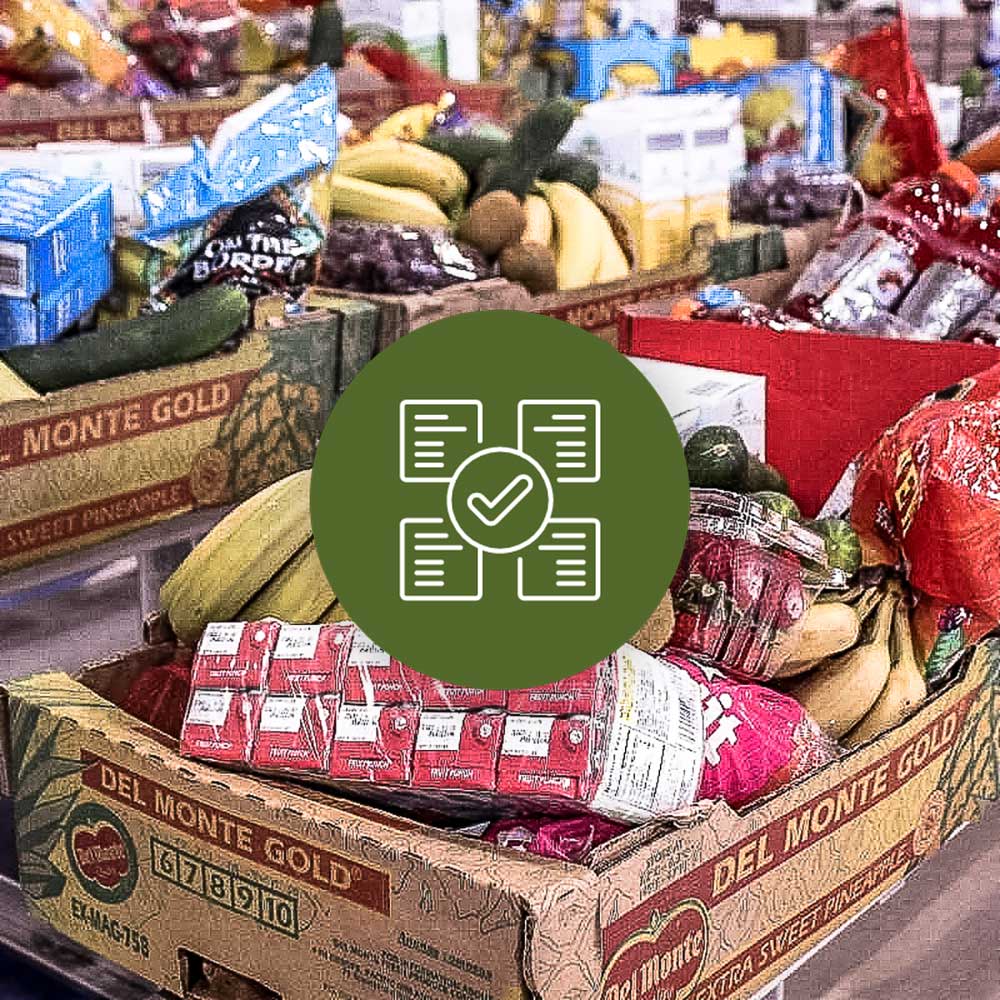
Secure Resources
Prepare Well For a Crisis
(1) Create an emergency preparedness kit:
- Face coverings / masks
- Hand sanitizer
- Sanitizing wipes
- Water (one gallon per person per day for three to seven days)
- Food (non-perishable and canned food supply for three to seven days)
- Battery-powered or hand crank radio
- National Oceanic and Atmospheric Administration (NOAA) Weather Radio (with extra batteries)
- Cell phone (with charger)
- First aid kit and first aid book
- Manual can opener for food
- Wrench or pliers to turn off water
- Blanket or sleeping bag (one per person)
- Prescription medications and glasses
- Seasonal change of clothing, including sturdy shoes
- Toothbrush and toothpaste
- Soap
- Feminine supplies
- Extra set of house keys and car keys
- Important documents (insurance policies, copy of driver’s license, Social Security card, bank account records)
- Fire extinguisher
- Cash and change
- Books, games or cards
(2) Make a family communications plan and practice.
Think about how you will talk with your family after an emergency. Plan for different ways to easily get connected with family members. For example, filling out contact cards for each family member to travel with. Make sure your school(s) and workplace(s) have access to your plan. Get more ideas here.
(3) Pack a “to-go” evacuation kit in case you need to leave your home.
Similar to the Emergency Preparedness Kit, this would be what you would take with you “on the go” – important documents, communications devices, prescriptions, toiletries, a change of clothes, etc. Your to-go kit is something you would prepare as you monitor conditions and as the potential for evacuation increases.
(4) Gas up your vehicles and withdraw some cash from the bank.
There will often be a run on gasoline, or pumps may be without power so make sure your vehicles are full prior to a crisis. Access to ATMs or banks may be limited, so having cash on hand is also important.
(5) Closely watch and listen to weather reports and follow government officials.
Add any local news apps to your mobile device. Check your state emergency management to see if they have an app as well. Ensure your weather app is downloaded and up-to-date. Have a battery-powered radio on hand, and keep your TV on a local station for new announcements and warnings.
(6) Keep a photo I.D. on you.
Having photo identification handy is important for many reasons. It will allow you to get back into your neighborhood should authorities be blocking access for outsiders. You’ll need I.D. for any medical needs or other emergency needs, as well as for banking or other activities.
(7) Secure your property.
Consider taping windows or covering them with plywood. Remove or store outdoor furniture, trash cans and other items that may be tossed about by wind. If excess water happens to be an issue with your basement, consider sandbagging around entry points.
RESPONSE
What To Do During a Crisis
When the unthinkable occurs, having a plan can make all the difference. In the middle of a disaster, here are some tips for staying safe through the storm.
REMAIN IN A SAFE AREA
Take shelter in a small interior room on the lowest level of your house – away from windows and glass doors. Close and secure all interior and exterior doors. Lie on the floor under a table or sturdy object.
RECEIVE WEATHER UPDATES
Employ a portable radio, television and/or smart phone for local weather information and updates. Comply with state and local official warnings.
PREPARE FOR POWER OUTAGES
In the event that you lose power, use a gas generator, but with caution. Follow all equipment instructions and use only when it is determined safe enough to do so. Operate outside of house only.
EMERGENCY PREPAREDNESS KIT
Store kit in a convenient location for quick access. Fill and store large containers of water for consumption and sanitation. Remain in a safe place until instructed to evacuate by a government official.
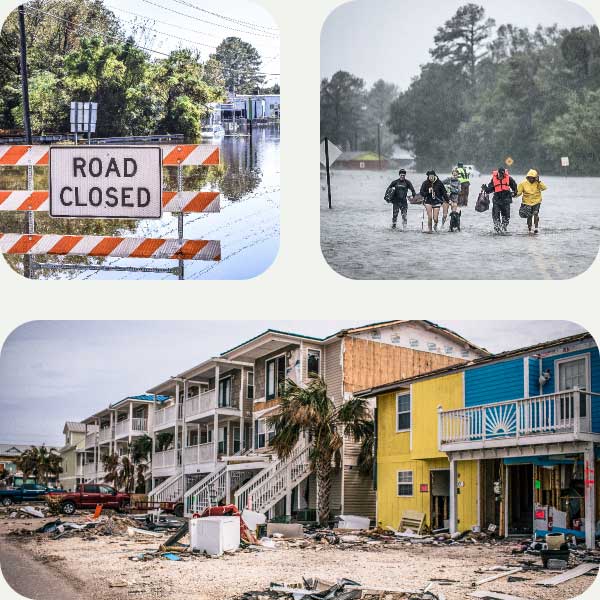
RECOVERY
Recover After a Disaster
We acknowledge that natural disasters are devastating events for both individuals and families within your community. At Feeding the Carolinas, our goal is to help you in the midst of and in the aftermath of a disaster, so that your family and your community can return back to normalcy and safety as quickly as possible.


